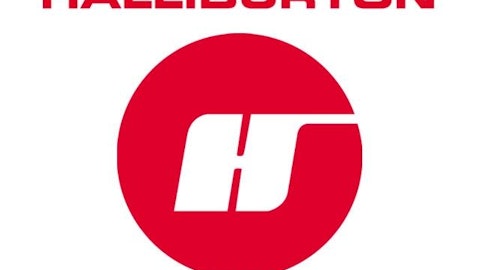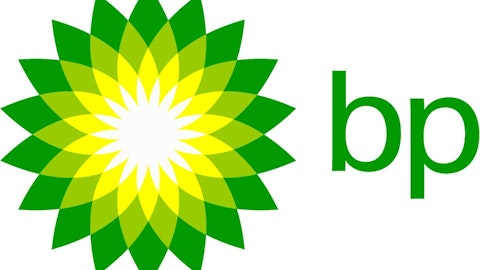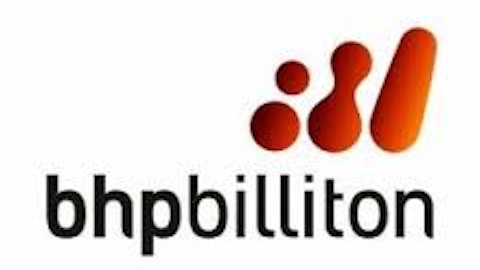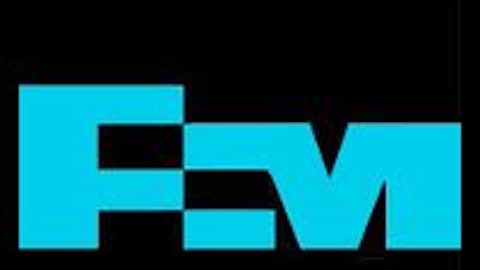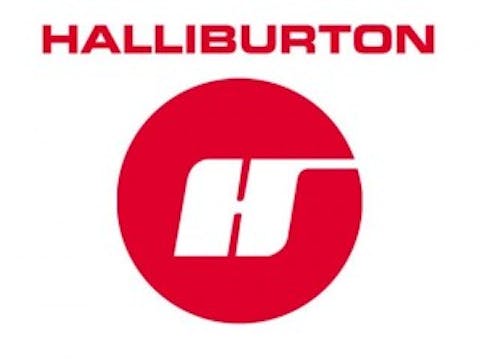
Amidst an overall weak forecast for the remaining year, what incentives can oil and gas services stocks offer to investors? In this article, I will assess the performances of Halliburton, Schlumberger and National Oilwell Varco.
Recent updates
Halliburton Company (NYSE:HAL) has had a steady upturn since Q3 2012, an appreciation of share price by almost 50%. The company’s financials are in a sound state even after it set apart $8 billion for the BP plc (ADR) (NYSE:BP) oil spill of 2010. The BP plc (ADR) (NYSE:BP) oil spill continues to affect Halliburton Company (NYSE:HAL) as Texas joins a growing list of states suing the company for damages from the oil spill. However, with the growing courtroom action and with Texas being the latest addition, the company’s short-term growth prospects may be in jeopardy.
As global oil demand fails to grow, Halliburton Company (NYSE:HAL) is capitalizing on minimizing costs from its operations as it switches from diesel to compressed natural gas (CNG) – a cheaper and cleaner alternative. The company is also eying hydraulic fracturing opportunities in China, which has the world’s largest recoverable shale gas resources. Out from its competitors, the company has the highest efficiency metrics. Coupled with a high growth forecast, Halliburton Company (NYSE:HAL) is continuing its positive gradient on the price chart.
Schlumberger Limited. (NYSE:SLB) is the world’s leading services provider for oil and gas services. The company has geographically diversified assets, which allows it to withstand supply shocks. Slow growth is expected to continue in the North American region, but the Middle East, Russia and China are expected to be growth drivers this year.
China’s growth is largely driven by imported oil and this year, the country is only expected to grow its oil demand by 3.8% – which does not bode well for Schlumberger Limited. (NYSE:SLB). Weak demand, weak prices and weak volumes follow an unfavorable situation for the company’s share price, especially when its cost of doing business has been increasing for the last four years.
National-Oilwell Varco, Inc. (NYSE:NOV) recently acquired Robbins & Myers, which supplies equipment and systems in industrial markets, including energy and chemicals. In May, Warren Buffett doubled his stake in the company to $7.5 million shares. If that’s not enough to get an investor interested, the company also announced an increase in its quarterly dividend with the overall payment at $0.26.
For the present time, weak market demand from Northern America is hurting the company very strongly but the introduction of horizontal drilling and a surge in demand for offshore oil rigs is providing promising hopes for the future.
Competition
Using the P/E and P/B metrics, Halliburton Company (NYSE:HAL) and Schlumberger look fairly valued compared to the industry averages. National-Oilwell Varco, Inc. (NYSE:NOV), on the other hand, is undervalued.
| Indicator | Halliburton | Schlumberger | National Oilwell Varco |
|---|---|---|---|
| Price/Earnings ttm | 20.2 | 17.6 | 12.4 |
| Price/Book | 2.5 | 2.7 | 1.4 |
| Net Income Growth (3 Yr Avg.) | 32.0 | 20.6 | 19.3 |
| Revenue Growth (3 Yr Avg.) | 24.8 | 22.6 | 16.4 |
| Dividend Yield , % | 1.02% | 1.64% | 0.72% |
| Return on Equity | 16.0 | 13.5 | 12.3 |
| Current Price | $42.37 | $72.14 | $69.65 |
Data from Morningstar and Financial Visualizations on June 13, 2013
Recently priced at $42.37, Halliburton Company (NYSE:HAL) provides the cheapest stock option for interested investors while boasting an appreciation trend. The company continues to focus on deep-water, unconventional and mature field resources. The company’s strength lies in generating high net income by minimizing costs and making profitable investment decisions. By contrast, Schlumberger Limited. (NYSE:SLB) and National-Oilwell Varco, Inc. (NYSE:NOV) both strive to maintain sales growth, and even more so net income growth.
National-Oilwell Varco, Inc. (NYSE:NOV), along with its competitors, does not have a monumental amount of debt that needs to be serviced. This makes a strong case for the reinvestment of its operating margins. On the flipside, Schlumberger Limited. (NYSE:SLB) earns the highest net income, making the company an outright winner for investors. However, there is an alarming sign for Halliburton — its inconsistency being shown in the ROE metric for the last 10 years.
Final thoughts
National-Oilwell Varco, Inc. (NYSE:NOV) is providing a strong indication of its potential, but its lack of international footing when compared to Schlumberger and Halliburton make it less attractive than its peers. While Schlumberger Limited. (NYSE:SLB) is suffering in the North American market and actually does not have major growth prospects, Halliburton Company (NYSE:HAL) is continuing to strive in the difficult market conditions as the company continues to reduce its costs and capitalize on international markets. With the inclusion of Connecticut Natural Gas in its operations and continued share price growth, Halliburton seems to be a solid buy.
The article Which Oil Play Is the Best Bet for Profits? originally appeared on Fool.com and is written by Marina Avilkina.
Marina Avilkina has no position in any stocks mentioned. The Motley Fool recommends Halliburton and National Oilwell Varco. The Motley Fool owns shares of National Oilwell Varco. Marina is a member of The Motley Fool Blog Network — entries represent the personal opinion of the blogger and are not formally edited.
Copyright © 1995 – 2013 The Motley Fool, LLC. All rights reserved. The Motley Fool has a disclosure policy.

